
Shakti, Navaratri, and the Dasha Mahavidyas: Their Relevance to Present-Day Human Life
In Hindu philosophy, Shakti represents the primal, cosmic energy that pervades the universe. She is the Divine Feminine, the force behind all creation, preservation, and transformation. Shakti is not just an abstract energy; she manifests in multiple forms and through various deities, especially revered during the festival of Navaratri and in the teachings of the Dasha Mahavidyas. These concepts, rooted in ancient tradition, still hold profound relevance to human life today.
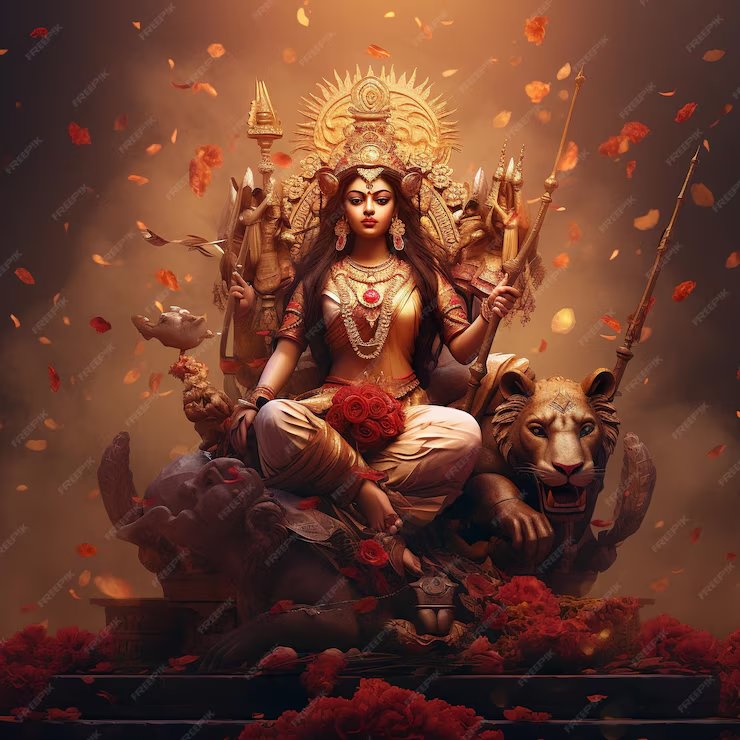
Understanding Shakti: The Divine Feminine
Shakti is often described as the energy behind everything that exists. While the masculine (Shiva) represents consciousness, it is Shakti that animates the cosmos, giving life and form to the material world. Shiva is the passive observer, while Shakti is the dynamic force that manifests reality. Shakti is seen not only as the mother of the universe but also as a source of wisdom, power, and transformation.
The ancient wisdom surrounding Shakti can be seen as an invitation to reconnect with our inner creative potential, resilience, and transformative power. In a time when many feel disempowered or disconnected, understanding and aligning with Shakti’s energy can offer pathways to reclaim personal power and purpose.
Navaratri: The Festival of Nine Nights
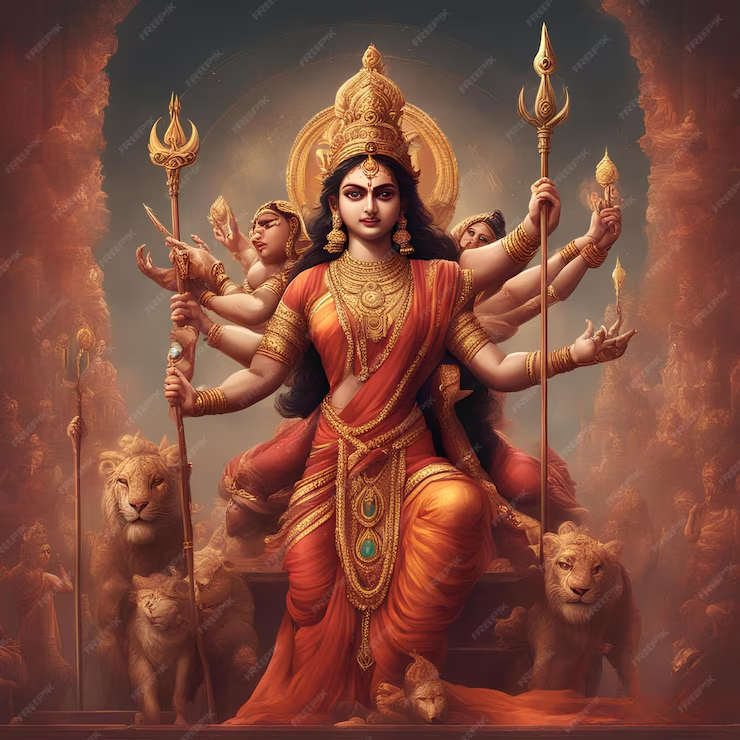
Navaratri, one of the most celebrated festivals in India, is a time dedicated to the worship of Shakti in her various forms. Over nine nights, devotees honor the goddess in her three primary manifestations: Durga, Lakshmi, and Saraswati. Each of these goddesses represents an essential aspect of life, and their worship during Navaratri offers a roadmap to balance and fulfillment.
Durga – The Goddess of Strength and Courage
The first three nights of Navaratri are devoted to Durga, the warrior goddess who defeats the demons of ignorance and ego. Her fierce aspect teaches us the importance of inner strength, resilience, and the courage to face life’s challenges. In today’s world, where mental health issues, stress, and uncertainty abound, invoking Durga’s energy can help us find the strength to overcome inner demons like fear, self-doubt, and negativity.
Lakshmi – The Goddess of Wealth and Abundance
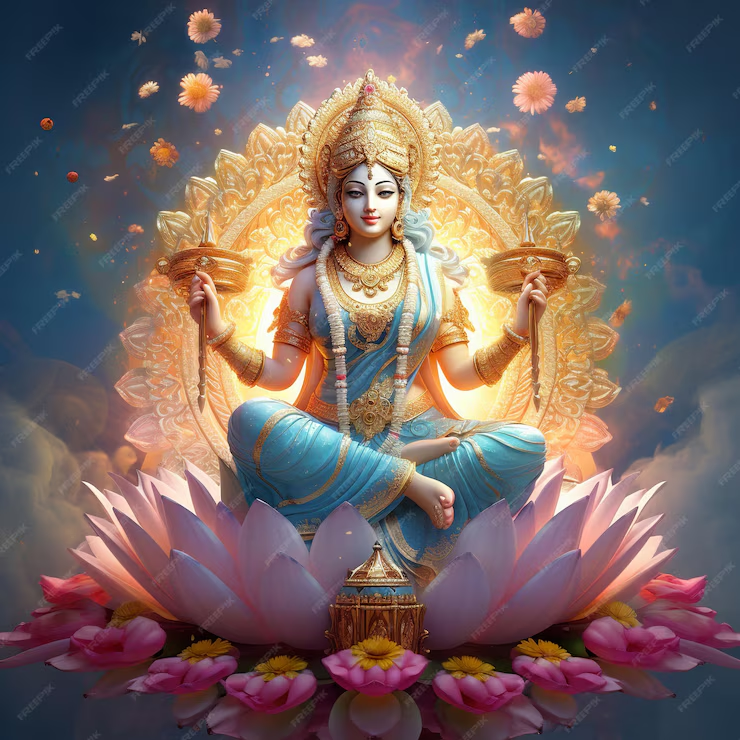
The next three nights are dedicated to Lakshmi, the goddess of prosperity, abundance, and beauty. Lakshmi’s blessings are not limited to material wealth but encompass spiritual richness as well. In modern life, where the pursuit of success often leads to burnout, Lakshmi reminds us to cultivate balance and gratitude. She encourages us to align our efforts with our higher values and to seek wealth not just in external possessions but in relationships, well-being, and inner peace.
Saraswati – The Goddess of Wisdom and Knowledge
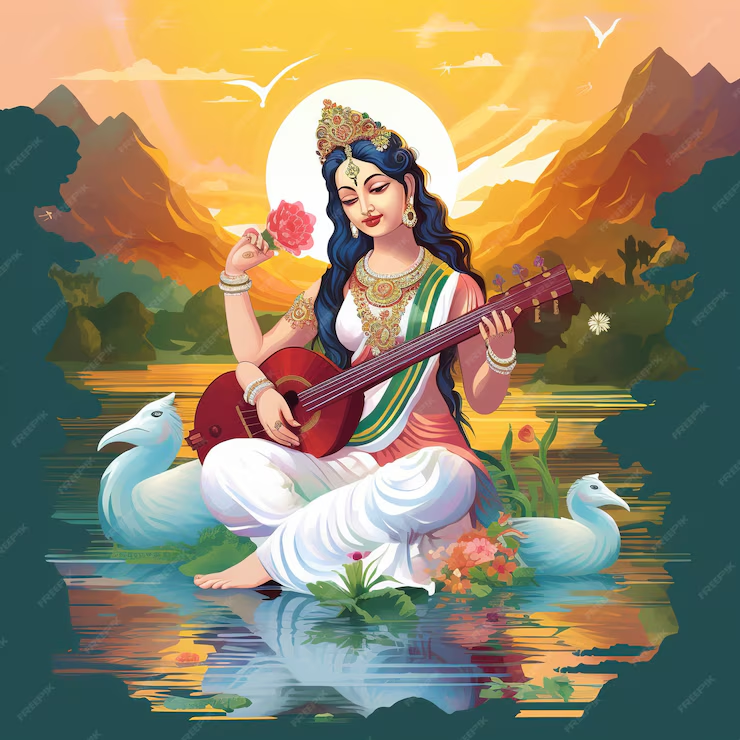
The final three nights are spent honoring Saraswati, the goddess of wisdom, learning, and creative arts. She represents the power of discernment, knowledge, and artistic expression. As we navigate a world filled with information overload and complex decision-making, Saraswati’s grace offers clarity, insight, and the ability to make wise choices. Whether we are students, professionals, or artists, Saraswati’s energy can guide us toward cultivating knowledge and creativity in meaningful ways.
Navaratri, therefore, provides a holistic approach to life, encouraging us to develop strength (Durga), prosperity (Lakshmi), and wisdom (Saraswati) in a balanced manner. This cycle of worship serves as a reminder that in order to thrive, we must honor all aspects of our existence—physical, emotional, and spiritual.
The Dasha Mahavidyas: The Ten Wisdom Goddesses
Besides the goddesses honored during Navaratri, the Dasha Mahavidyas (Ten Great Wisdom Goddesses) offer another profound way to understand the diverse expressions of Shakti. The Mahavidyas are ten aspects of the Divine Feminine, each embodying a specific form of wisdom that addresses different facets of life and spiritual evolution. These goddesses, though often seen as fierce and paradoxical, offer transformative lessons that are highly relevant to our contemporary lives.
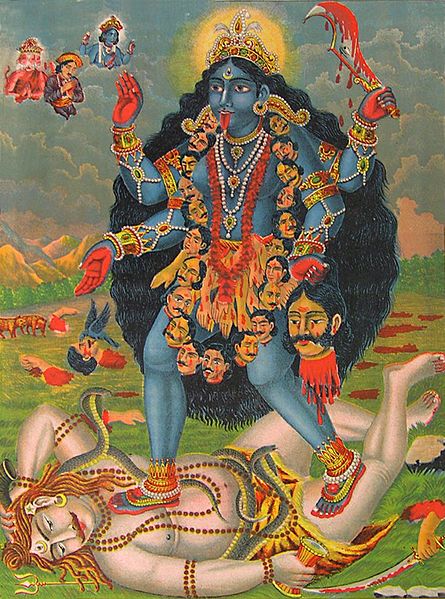
Kali – The Power of Time and Transformation: Kali is the goddess of destruction, time, and change. She represents the inevitability of death and the transformative power of facing our fears. In a world where we often resist change, Kali teaches us to embrace the cycles of birth, death, and rebirth, reminding us that destruction is often necessary for growth.
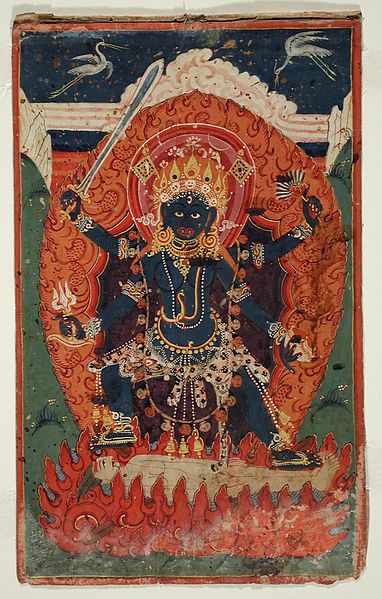
Tara – The Savior and Protector: Tara is known for her compassion and her ability to guide souls across turbulent waters. She is a savior who helps individuals navigate life’s challenges. In our present day, Tara’s wisdom can be called upon during moments of uncertainty and distress, offering protection and guidance when we feel lost or overwhelmed.
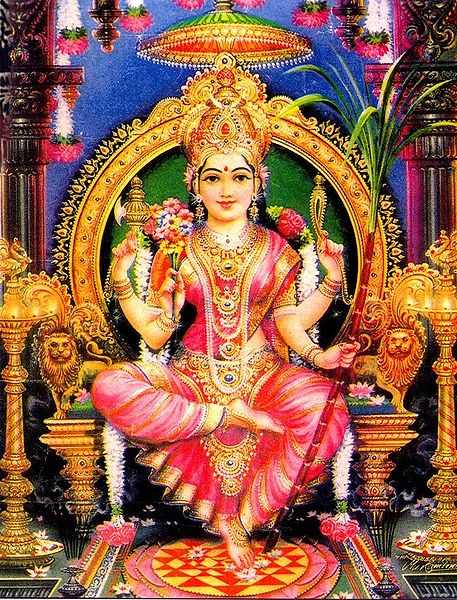
Tripura Sundari – The Embodiment of Beauty and Love: Tripura Sundari represents the beauty and harmony inherent in the universe. She is the goddess of divine love, and her wisdom teaches us to see the sacred in all aspects of life. Today, her energy invites us to reconnect with our hearts, find joy in simple pleasures, and cultivate beauty in our relationships and surroundings.
Bhuvaneshwari – The Queen of the Universe: Bhuvaneshwari symbolizes the vastness of space and the infinite possibilities of existence. She teaches us to see beyond the limited perspectives of ego and embrace the interconnectedness of all things. In modern times, her energy reminds us to expand our awareness and break free from narrow, self-limiting beliefs.
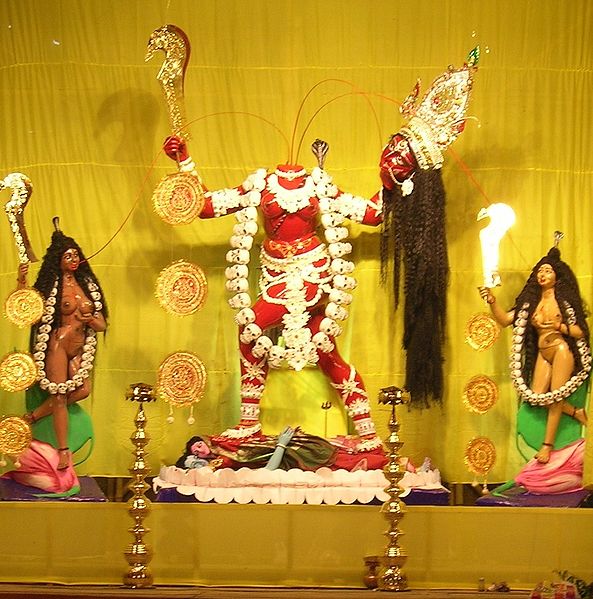
Chinnamasta – The Self-Sacrificing Goddess: Chinnamasta is the goddess who offers her own head as a sacrifice, symbolizing the dissolution of the ego. Her lesson is one of selflessness, reminding us to let go of personal desires for the greater good. In a society that often promotes individualism, Chinnamasta’s wisdom urges us to consider the collective and to find empowerment through self-sacrifice and service.
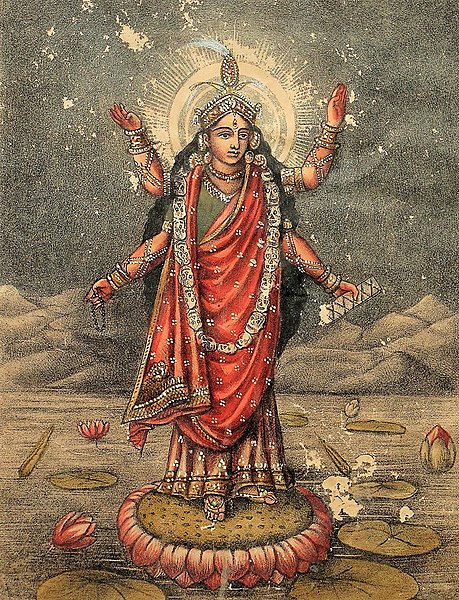
Bhairavi – The Fierce Goddess of Discipline: Bhairavi represents the power of discipline and the ability to focus on one’s spiritual goals with unwavering determination. In today’s fast-paced world, her energy encourages us to cultivate discipline and focus in order to achieve our highest potential.
Dhumavati – The Widow Goddess of Detachment: Dhumavati embodies the state of loss, detachment, and disillusionment. She teaches us that not all experiences are pleasant, but that wisdom can be gained from hardship. Her energy is particularly relevant in times of personal or global crisis, reminding us that through loss, we can gain a deeper understanding of life’s impermanence.
Bagalamukhi – The Goddess Who Stills the Mind: Bagalamukhi’s power lies in her ability to paralyze enemies, both external and internal. In today’s world, where mental distractions are constant, Bagalamukhi offers the gift of mental stillness and control, helping us to overcome negative thoughts and focus on what truly matters.
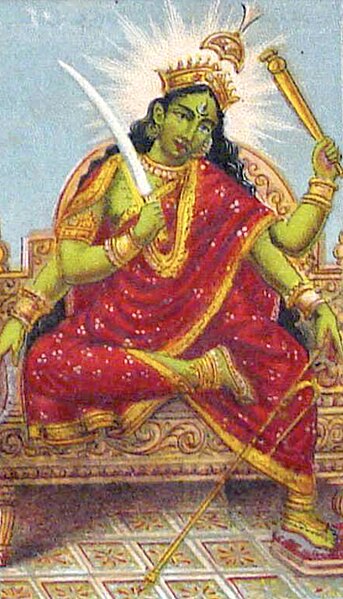
Matangi – The Outcast Goddess of Creativity: Matangi represents the power of the marginalized and the unconventional. She is the goddess of creativity, music, and communication, teaching us to embrace our authentic selves, even if that means being different from societal norms. Her wisdom is particularly relevant today as more people seek to break free from the constraints of conformity and embrace their unique voices.
Kamala – The Goddess of Fulfillment and Prosperity Kamala is the goddess of material and spiritual fulfillment. She teaches us that true abundance comes from aligning with our higher purpose and living a life of integrity and generosity.
Relevance to Present-Day Life
The energies of Shakti, Navaratri, and the Dasha Mahavidyas offer profound insights for modern living. In a world increasingly characterized by fragmentation, stress, and disconnection, these ancient teachings provide a roadmap for personal empowerment, healing, and transformation. Whether facing personal challenges, navigating societal changes, or seeking spiritual growth, the wisdom of these goddesses remains timeless.
By integrating the lessons of Durga, Lakshmi, Saraswati, and the Mahavidyas, we can create a more balanced, empowered, and meaningful life. Shakti invites us to embrace our inner power, face our fears, and cultivate wisdom, while the goddesses guide us toward a deeper understanding of ourselves and the universe.
